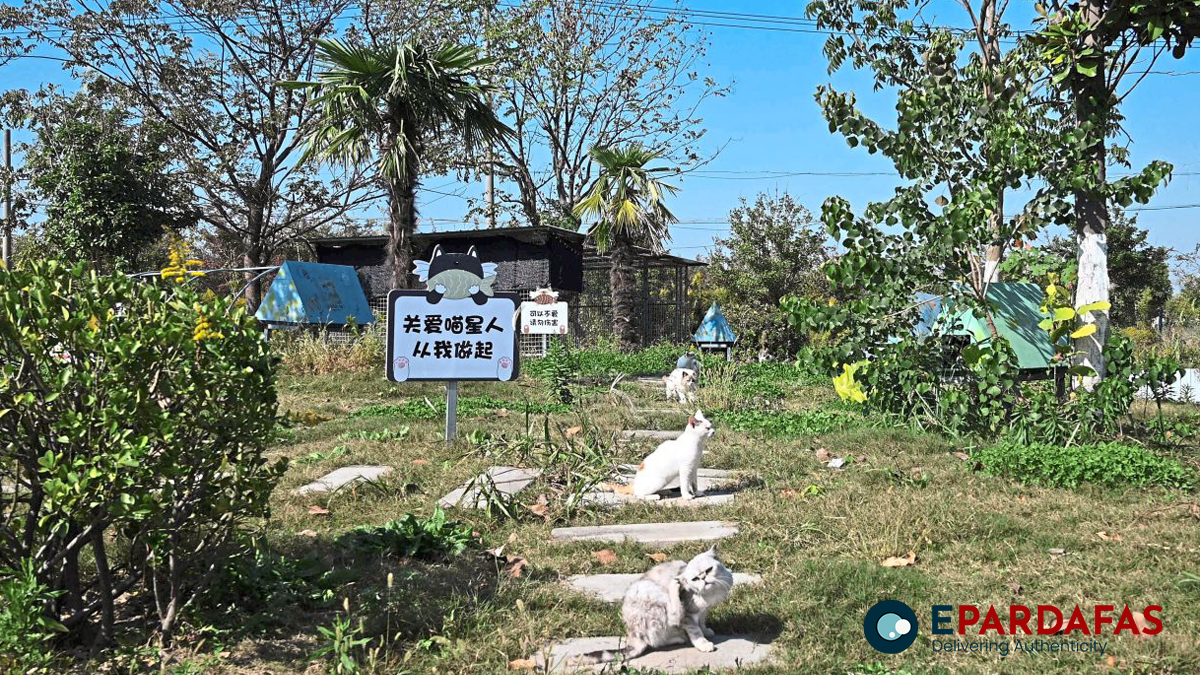
Illegal Feline Meat Trade Uncovered in Guangdong and Guangxi, China
An animal protection NGO has brought to light the alarming illegal trade of feline meat in China, specifically in the provinces of Guangdong and Guangxi. The illicit market was exposed when the local police, acting on a tip from animal welfare activists, intercepted a truck transporting more than 1,000 cats destined to be slaughtered and sold as pork or mutton.
Acting on a tip from animal welfare activists, police intercepted the truck carrying the felines in the eastern city of Zhangjiagang. The cats were moved to a shelter, according to a report in a daily newspaper.
According to an activist, cat meat can fetch 4.5 yuan ($0.61; £0.51) per catty, a unit of measure in China that is roughly equivalent to 600g. One cat can yield four to five catties, the activist added. The rescue uncovered an illicit trade of cat meat and raised fresh concerns about food safety.
The Humane Society International said that most people in China do not eat cat meat, but an estimated four million furry friends are slaughtered for food each year in an illegal market that includes areas of Guangdong province, neighboring Guangxi and beyond.
Several Chinese animal lovers have been fighting to save outdoor house cats and urban strays from meat traders, who snatch the felines from the streets and sell them in underground markets in areas including Guangdong province and neighboring Guangxi in southern China.
According to The Paper, activists in Zhangjiagang had noticed a large number of cats being held in nailed-up wooden boxes in a cemetery and monitored it for six days. When the cats were loaded onto a truck on 12 October, they stopped the vehicle and called the police.
Cat lover Ms. Han Jiali is the whistleblower. The 33-year-old Han is deeply committed to certain number of people in China fighting the abuse of pet cats and dogs in the absence of broader institutional protections for domestic animals. Upon losing her pet cat Dabai from her home in Shanghai last year, she began hunting for it and ended in exposing the underground feline meat trade. Han uncovered a supply chain preying on urban strays and outdoor pets in the region surrounding Shanghai. She found skinned cat carcasses piled in crates and sacks of fur in Guangdong province She reportedly found village restaurants that openly advertised cat meat and unscrupulous sellers who passed it off as mutton or rabbit.
Last month, she and other animal rescuers, with the help of local police, intercepted a truck carrying hundreds of cats out of Zhangjiagang, near Shanghai. Police and the animal rescuers stopped the truck, and the cats were rushed to a shelter in the town of Taicang, an hour away from Shanghai.
She expressed her determination to save other cats from the same fate and spent the past year filing police reports, tracking down thieves and sending petitions to the Guangdong government. It’s a dangerous mission that has resulted in death threats from cat meat traders and an incident in December where a man deliberately drove into her car at a highway rest stop.
The cats are often obtained through cruel methods, such as theft or poisoning. They are then slaughtered, and their meat is sold in wet markets or online.
However, the Chinese government has taken steps to crack down on the illegal trade in cat meat. In 2020, the government issued a new regulation that banned the sale of wildlife, including cats and dogs. However, the trade continues to thrive, and it is difficult to enforce the ban. The Chinese wild animal and livestock rules have several loopholes. For instance, the capture of a free-roaming family pet outdoors is not considered theft. And while the law prohibits the consumption of cats, violators are fined on food safety grounds rather than punished for animal cruelty. Activists and even state media commentators have called for legislators to adopt an animal cruelty law to close a loophole in the existing wild animal and livestock rules.
The illegal trade of animals is not restricted to cats alone. Animal rights activists are a rapidly growing community of pet lovers and animal rights activists who have spoken out publicly against animal cruelty, including the Yulin dog meat festival, and who blame the government for not regulating dogs and their owners properly in the first place.
Pet lovers and animal rights activists are a rapidly growing community in China. Global and it has spoken out publicly against animal cruelty, including the Yulin dog meat festival, and who blame the government for not regulating dogs and their owners properly in the first place.
According to free radio Asia, the Chongqing University of International Business and Economics suspended one of its security guards in September after he reportedly beat a dog to death, admitting that he had “engaged in improper behavior” while “dealing with a stray dog.”
Such killings, which were also reported during the Shanghai lockdown of 2022 — don’t enjoy widespread public support. A recent survey by journalist Wang Zhi’an showed that only around 10% of Chinese people support culls as a way of managing the problems caused by strays or undisciplined pets.
In fact, such incidents have evoked strong reactions from animal lovers who started reacting like vigilantes in dog related incidents. A police report from the southwestern city of Guiyang stated that five people were hauled for questioning after they went round to harass a local man who beat a pet dog to death after it leapt up at his 6-year-old daughter.
The China Small Animal Protection Association reported on its WeChat account that private dogcatchers are now taking pets in the eastern city of Wuxi, while reports have also been circulating that a dog was killed in a dormitory at the Sichuan Vocational College of Science and Technology.
In fact, China recently observed National animal shelter appreciation week and Andrea Gung, animal welfare advocate made an appeal for financial help.














Comments